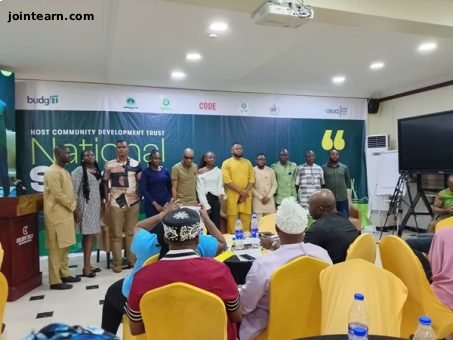
Stakeholders at a two-day Host Community Development Trust (HCDT) National Summit have urged the Federal Government to create a policy framework for periodic review of the Petroleum Industry Act (PIA) and improve oversight of settlors and HCDTs by the National Assembly.
The summit, held in Port Harcourt, Rivers State, brought together civil society groups, HCDTs, boards of trustees, and media representatives. It was organized by CISLAC, Connected Development (CODE), BudgIT, KebetKache Women Development and Resource Centre, and NDEBUMOG, with support from OXFAM Nigeria, under the “Power of Voices/Fair for All Coalition” initiative.
Speakers at the conference highlighted slow PIA implementation in host communities. They alleged that extractive firms (settlers), responsible for releasing the 3% community development funds, are non-transparent and communities have yet to see tangible benefits four years after PIA implementation. Residents still face abject poverty, poor roads, inadequate healthcare, and lack of social amenities despite available funds.
Participants also noted that most host community residents lack awareness of PIA and rely solely on Global Memorandums of Understanding (G-MOUs). They accused settlors of attempting to influence HCDT membership and highlighted gender imbalances in community development trust boards.
The summit recommended:
- The Federal Government should provide policy direction for periodic review of PIA and ensure fiscal and regulatory frameworks that promote transparency, equity, and community ownership.
- Support sustainable livelihood and environmental restoration programs in oil-bearing areas.
- Nigerian Upstream Petroleum Regulatory Commission (NUPRC) should strengthen regulatory oversight, enforce compliance, and maintain a performance monitoring dashboard for all HCDTs.
- National Assembly should conduct constituency visits and provide legislative oversight to ensure settlors and HCDTs undertake sustainable, environmentally friendly, and inclusive programs.
- Settlors should respect community autonomy, ensure transparent funding, gender sensitivity, youth representation, and publish annual audited reports.
- State and local governments should integrate HCDT projects into local development plans and provide infrastructure and social services support.
- Traditional and community institutions should promote inclusive leadership, mediate conflicts, and ensure transparent resource allocation.
- Civil society and media should continue advocacy, provide technical support, conduct community scorecards, and highlight successes or malpractices to drive accountability.
The stakeholders emphasized that effective PIA implementation depends on transparency, community participation, and accountability across all levels.


Leave a Reply